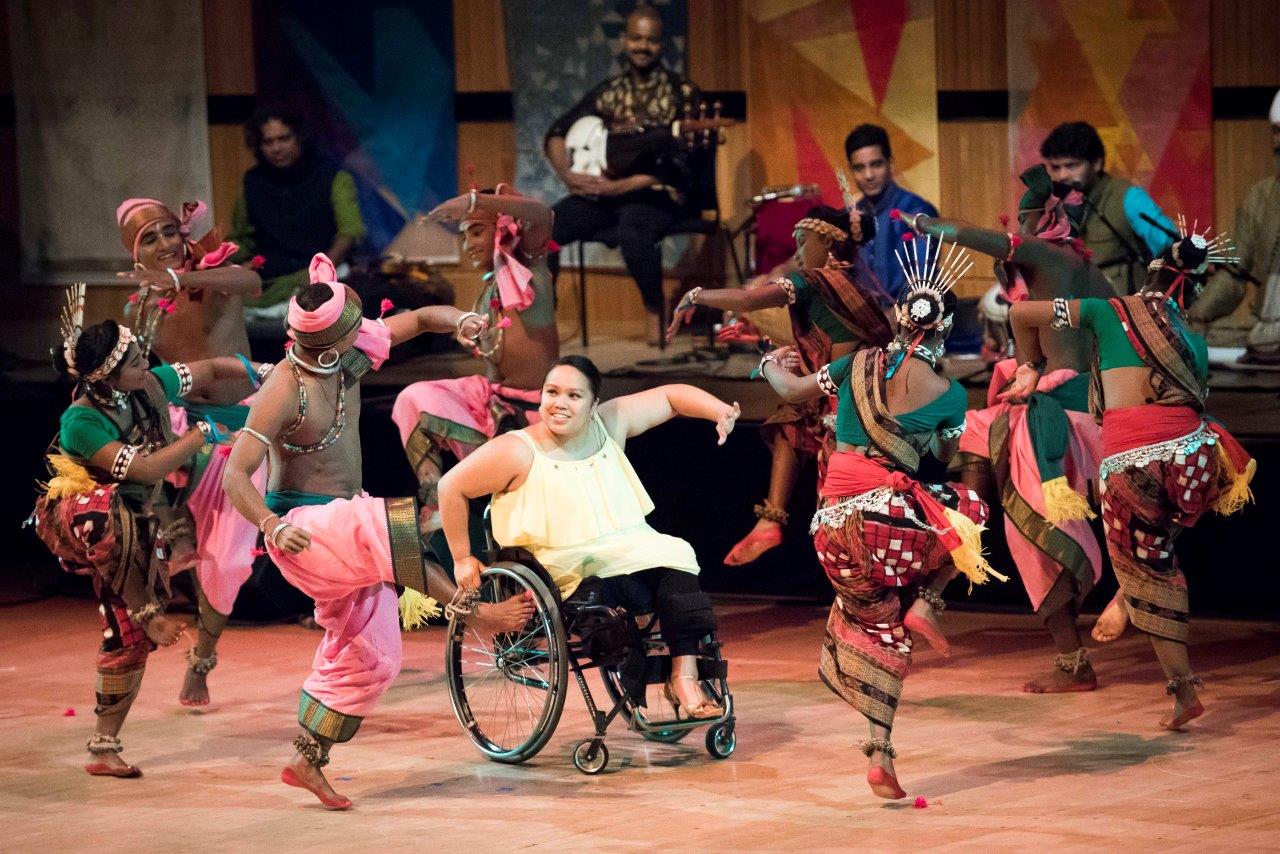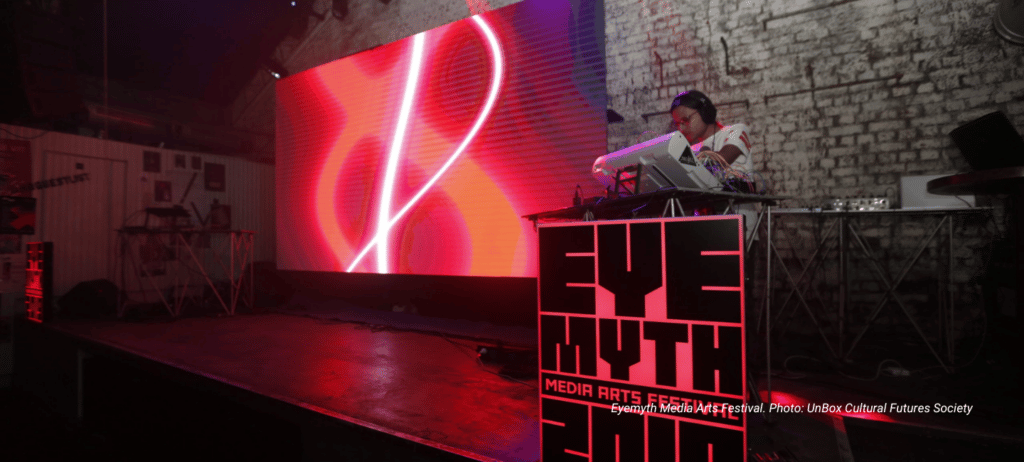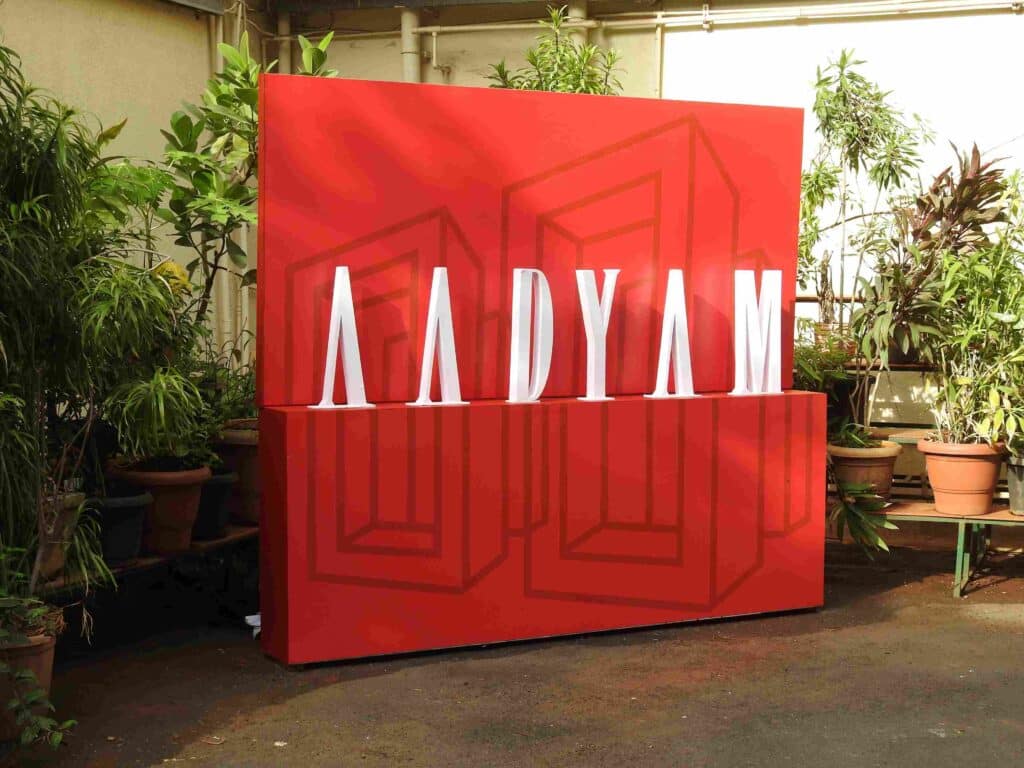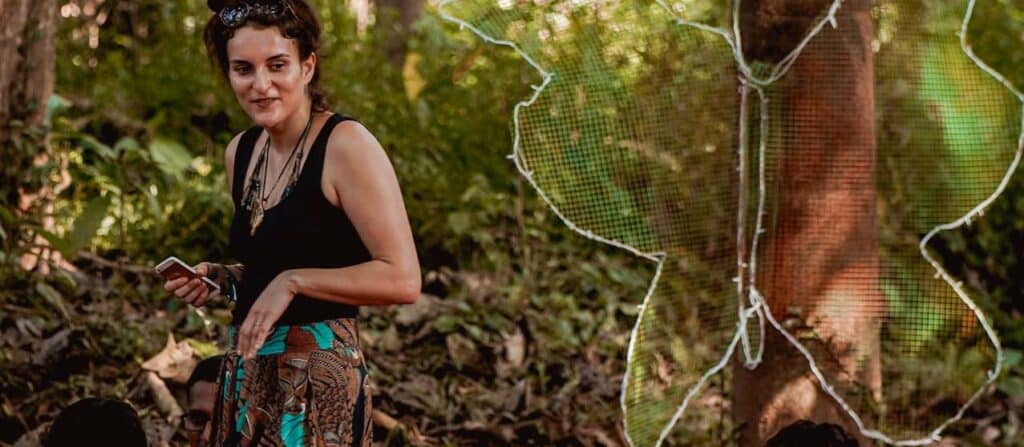Arts festivals uniquely bring together artists and audiences through the informality of venues; whether they are fields, mountain sides, train stations, city squares, sports stadiums or in multiple spaces concurrently across metros in theatres, museums and galleries. Festivals can ‘take over’ a city, create a sense of place, community and dynamism through performance and participation.
The British Council has made possible the Festivals From India platform with ArtBramha in India and the Audience Agency in the UK to: develop new audiences and showcase the huge variety of arts and culture festivals here; develop business skills of festival managers with UK and Indian experts; and grow international partnerships and networks with the UK and beyond.
Backed by research, this new platform is a repository of guidance for families wanting to find a festival and for festival organisers wanting to make their event more accessible or find a job. British Council’s Taking The Temperature research reports, prepared with FICCI, Art X Company and Smart Cube, confirms 88% of the creative industries are micro, small and mid-size enterprises, with COVID-19 impacting the independent and emerging festivals in particular, with 50% losing over 51% of their income in 2020-21.
We hope Festivals From India will be a gateway to destination India and to grow even more artistic collaboration with the UK and internationally. It will build trust through cultural relations and strengthen the creative economy through partnerships that really matter – between artists, festivals, and audiences. The box office is open, now you are most welcome to explore, experience and engage.
Festivals for international adventure seekers
In the UK, the Edinburgh Festivals, the Manchester International Festival and London International Festival of Theatre (LIFT), to name just three, reflect the ambition of artists, cities and audiences to open up, reach out and welcome in the world through local, national and international cultural tourism.
India’s iconic festivals such as the Jaipur Literature Festival, Serendipity Arts Festival and the Kochi Muziris Biennale are beacons for eloquent artistic exchange and the tens of thousands of young engaged audiences who flock to them readily open for new experience of international arts.
Theatre, dance, film, music, literature, crafts, heritage, design, visual arts and CreaTech all are here. Specialist and multiarts festivals express the breadth and depth of creativity in India and the UK. Festivals From India will strengthen the network with the UK and beyond. From traditional music at Jodphur RIFF to contemporary culture at NH7 Weekender, all is possible if you know where to look – Festivals From India.
From urban to rural
Smaller festivals in less-travelled metros and non-metros for international travellers are places for new discoveries and adventures to start reflecting on the rich diversity of language and geographies India and the UK. From Diffusion Festival in Wales to the Belfast International Arts Festival in Northern Ireland; and Chennai Photo Biennale in south India to Ziro in the remote north east, festivals build a sense of place, local pride and drive livelihoods and economies for artists, producers, sponsors and governments.
In 2019, the British Council launched the South Asia Festivals Academy in Guwahati. Adventure seekers visiting Assam for off-the-beaten-track discoveries or hitting the major metros for mainstream entertainment, in India arts festivals are part the country’s DNA, a focus for arts entrepreneurs and a locus for crowds to celebrate, share and exchange.
Driving the creative economy
Festivals help to drive the creative economy. As the Edinburgh Festivals City initiative and the Department of Tourism, Government of West Bengal’s Durga Puja festival research affirms, these large annual celebratory culture cities drive GDP, shape livelihoods for artists and artisans, and act as magnets for new visitors booking travel, staying in hotel rooms, using local transport, eating in restaurants, dropping in on street vendors and picking up chai from the neighbourhood stall. On a macro and micro level, festivals build international reputation and strengthen creative economies.
Sharing stories
Global challenges of climate change and calls to action such as Black Lives Matter representing stories from different communities and marginalised voices often find a safe home at festivals that are generous, collaborative, and responsive. Since Section 377 was removed, LGBTQI+ festivals have grown in number including Gender Unboxed and KASHISH. Festivals showcasing Dalit writers, such as Spoken, reflect important concerns for sharing stories and building empathy between disparate communities. Festivals like no other build living bridges between people.
Socially conscious for this generation
The UK had spearheaded a community of festivals who seek to minimise the carbon footprint, reduce waste, and encourage artists and audiences to eat, drink, travel and stay mindful of the impact they have on the environment. From glamping at Glastonbury Festival in Somerset to travelling by the women drivers of Pink City Rickshaw Company in Jaipur, many festivals have led the way for Generation X and millennials to be conscious consumers of culture festivals and arts.
Digital innovators change the future
Over the past two years, the impact of COVID-19 on festivals has been dramatic with second and third waves, lockdowns, and social distancing, but festivals have also shone with remarkable resilience moving online, to new hybrid models to reach many more audiences. While some festivals such Future Everything in Manchester, Sheffield DocFest in Yorkshire; and EyeMyth in New Delhi have innovated through the arts and adapted with new innovations in CreaTech with AI, VR and gaming.
All the world’s a stage
It’s been said of The Mahabharata all the stories of the world are here. If they aren’t in the Mahabharata, they don’t exist. Perhaps this is also true of arts festivals. They are endlessly creative, adaptable and inclusive – the world of stories is also on India’s live and digital festival stages.
Jonathan Kennedy is the Director Arts for the British Council in India.




Share on